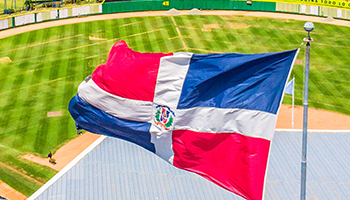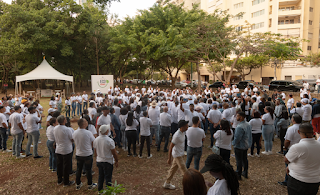La OEA publica la guía “Marcos legales para el pago por servicios ambientales en América Latina y El Caribe: Análisis de ocho países”
 | La OEA publica la guía “Marcos legales para el pago por servicios ambientales en América Latina y El Caribe: Análisis de ocho países” La Organización de Estados Americanos (OEA) acaba de publicar la guía “Marcos legales para el pago por servicios ambientales en América Latina y El Caribe: Análisis de ocho países,” que analiza las tendencias, lecciones y experiencias que se han llevado a cabo en la implementación de PSA en 8 estados miembros: la República Dominicana, Bolivia, Chile, Costa Rica, Colombia, Ecuador, Panamá y Perú), así como los desafíos y aportes de los marcos legales e institucionales en su implementación. …el Departamento de Desarrollo Sostenible (DDS) de la OEA ha sido partícipe en la búsqueda de enfoques alternativos, innovadores y basados en el mercado, como los Pagos por Servicios Ambientales (PSA)… En los últimos años, el Departamento de Desarrollo Sostenible (DDS) de la OEA ha sido partícipe en la búsqueda de enfoques alternativos, innovadores y basados en el mercado, como los Pagos por Servicios Ambientales (PSA), para abordar la administración de los recursos naturales, la protección del medio ambiente y la conservación de la biodiversidad entre los países miembros.Como un mecanismo innovador que le asigna valor de mercado reconocible a los servicios que prestan los ecosistemas, los PSA están siendo cada vez más utilizados en Latinoamérica para promover acciones de conservación y de desarrollo sostenible. Sin embargo, como todo instrumento económico, la adopción de esquemas exitosos de PSA requiere de un marco legal claro e institucionalidad eficaz. El estudio en español, que en la sección dedicada a la República Dominicana habla del Proyecto de Cuenca Alta del río Yaque del Norte, hace una revisión de la infraestructura legal existente y condiciones habilitantes para apoyar el desarrollo y consolidación del mercado de servicios ambientales en Latinoamérica y el Caribe, en áreas tales como tenencia y propiedad de la tierra, bosques, biodiversidad, agua y legislación fiscal. Además del análisis legal, la guía también incluye una revisión de aspectos institucionales y económicos, identificando las metodologías utilizadas para llevar a cabo las transacciones de PSA. Entre las localidades cuyo valor turístico se ha incrementado notablemente producto de estas obras, según resalta la Sector, figuran Las Terrenas, Samaná, Cabarete, Puerto Plata (plantas de tratamiento de aguas residuales y sistema sanitario; construcción de la carretera San Marcos Arriba-Teleférico, en PP) y el municipio de Sosúa, también en Puerto Plata, beneficiado con el complejo habitacional Villa Liberación, en el que 672 familias que antes vivían en condiciones infrahumanas fueron reasentadas en esta urbanización modelo. La publicación es de gran utilidad para la promoción de sistemas exitosos de PSA, ya que identifica los temas críticos, las mejores prácticas y las condiciones legales e institucionales necesarias para desarrollar e implementar sistemas de PSA que contribuyan al manejo sostenible de los ecosistemas y de los servicios ambientales que estos proveen.
| |
| Fecha de Publicación:12 de Mayo del 2009 |

Noticias relacionadas
-

Dominicanos en Grandes Ligas
Las ultimas noticias/novedades de lo que acontece con los Dominicanos en las Grandes Ligas durante toda la temporada 2024





